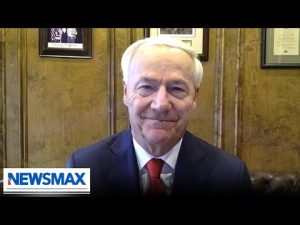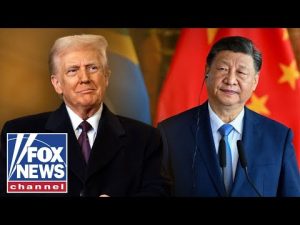As the president descended upon Malaysia, the scene was surprisingly lighthearted, offering a familiar spectacle for those who’ve followed his international trips closely. Indeed, in a twist of cultural exchange that even the most seasoned diplomats might envy, he indulged in his now-famous local dance. This time, it was amid the vibrant backdrop of Malaysia. While the dance moves may not have won any awards for technical precision, there’s something classic about a president who doesn’t mind kicking up his heels in a foreign land.
But as entertaining as such moments may be, they merely provided a brief interlude to the serious business at hand. Hanging heavily over the trip are the upcoming discussions with Xi Jinping, the general secretary of the Chinese Communist Party. The meeting, set to take place in South Korea, marks the initial face-to-face encounter between these two global powers, a situation that has enough gravitas to make even the most confident diplomats slightly uneasy. Expected topics of discussion include trade barriers, tariffs, and the ever-contentious issue of rare earth minerals. American soybeans, once a bountiful export to China, will also be on the docket, given the spectacular drop in Chinese purchases from $13 billion last year to a shocking zero this year.
Behind the lively public engagements, the silent drumbeat of diplomacy continues. Treasury Secretary Scott Besson, along with the president’s top trade representative, Jameson Greer, are engaged in closed-door discussions with their Chinese counterparts. Though China’s leader, likely wisely, has chosen to observe the unfolding events from afar, the presence of these top officials ensures that talks remain underway in Malaysia.
Reactions to these developments present a tale worthy of political drama. On one side, there’s anticipation, some might say a hopeful expectation, that trade relations can be amicably adjusted. On the other, there’s skepticism, with concerns that the meeting could descend into a diplomatic dance far less coordinated than the president’s impromptu routines. Critics and pundits alike are poised for results, though whether those results take the form of constructive agreements or pointed disagreements remains to be seen.
As we await updates from these important meetings, it becomes clear that this trip to Asia could well define or redefine economic relationships across the globe. In the meantime, the president’s foray into cultural activities might just serve as a brief pause before the serious work begins. For all the advances or setbacks that might come from this meeting, those dance steps in Malaysia might remind us all that even the most weighty of diplomatic endeavors occasionally benefit from a lighter touch.







